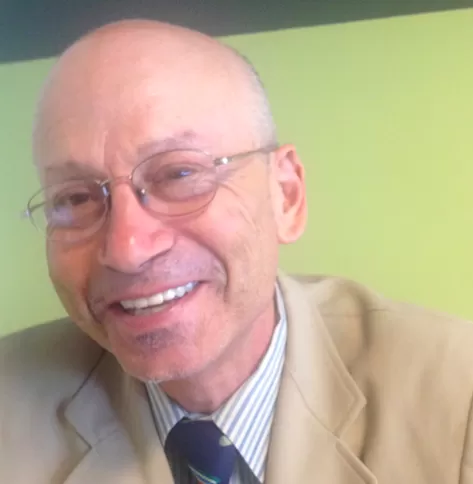Irvin Dawid discovered Planetizen when a classmate in an urban planning lab at San Jose State University shared it with him in 2003. When he left San Jose State that year, he took with him an interest in Planetizen, if not the master's degree in urban & regional planning.
As a long-time environmental activist, he formed the Sustainable Land Use committee for his local Sierra Club chapter and served six years on the Bay Area Air Quality Management District’s Advisory Council from 2002-2008. He maintains his interest in air quality by representing Sierra Club California on the Clean Air Dialogue, a working group of the Calif. Environmental Dialog representing business, regulatory and public health/environmental interests.
Major interests include transportation funding, e.g., gas taxes, vehicle miles traveled (VMT) fees, road tolls and energy subsidies that lead to unlevel playing fields for more sustainable choices.
He hails from Queens (Bayside) and Long Island (Great Neck); received an AAS in Fisheries & Wildlife Technology from SUNY Cobleskill and a B.S. from what is now Excelsior College.
After residing for three years on California’s North Coast, he’s lived on the San Francisco Peninsula since 1983, including 24 years in Palo Alto. Home is now near downtown Burlingame, a short bike-ride to the Caltrain station.
He’s been car-free since driving his 1972 Dodge Tradesman maxi-van, his means to exit Long Island in 1979, to the junkyard in 1988.
Major forms of transportation: A 1991 'citybike' and monthly Caltrain pass, zone 2-2. "It's no LIRR, but it may be the most bike friendly train in America."
Irvin can be reached at [email protected]
California Bike Lanes May Be Exempted From Environmental Review
If Gov. Jerry Brown signs AB 2245, a bill which will exempt bike lanes from the CA Environmental Quality Act until 2018, opponents of these lanes will be deprived of a major tool to delay these projects that may accompany controversial 'road diets'.
Democratic Platform: Strong on Sustainability, Short on Transportation Specifics
With the Democratic convention underway in Charlotte, Streetsblog's Tanya Snyder looks for the transportation element in their platform, but finds it lacking. Sustainability refers to the economy, not to financing the infrastructure investments.
In Defense of the High Line
The <em>New York Times</em> published four letters in response to an earlier op-ed from the self-described, “bitterly nostalgic” blogger, Jeremiah Moss, who blasted the popularity of the High Line, including one letter from the High Line founders.
Transportation Under a Romney/Ryan Administration
If Romney/Ryan win in November, we may know what to expect in terms of national transportation spending if they were to follow the Republican platform adopted on Aug. 28. In terms of increasing transportation revenue, it may not differ from Obama's.
Criticism of Fuel Efficiency Regulations from a Surprising Source
With President Obama adopting historic fuel efficiency regulations for motor vehicles, it may be helpful to hear from opponents of the regulatory approach, not only from the President’s political opponents but also the venerable Brookings Institution

























